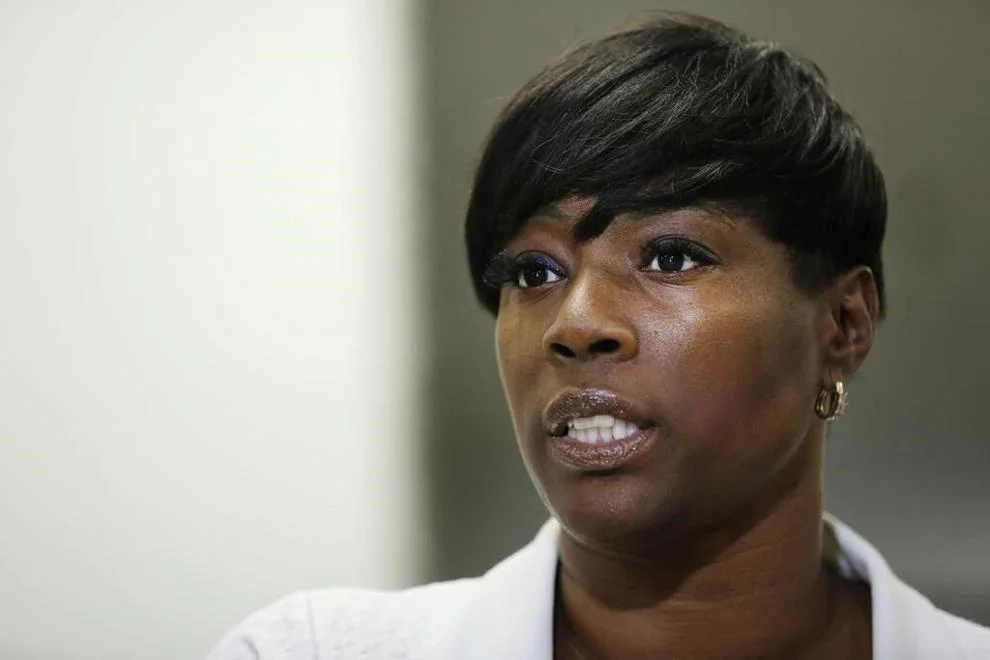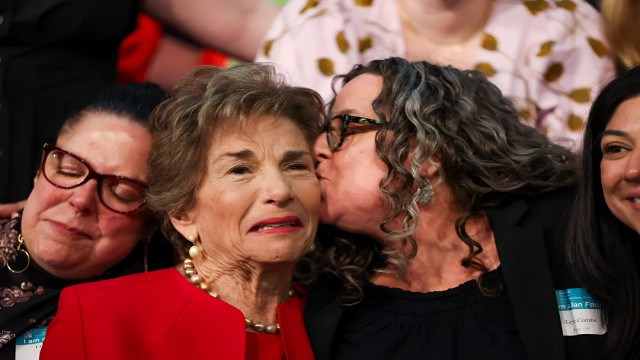
(Andy Jacobsohn/The Dallas Morning News via AP, File)
A Texas appeals court has overturned the conviction and five-year prison sentence of Crystal Mason, a Fort Worth woman, for casting an illegal provisional ballot. The court ruled that Mason, who was on probation for a previous felony conviction, was unaware of her ineligibility to vote in the 2016 election. During a news conference, Mason expressed relief and gratitude for the decision, describing her emotional journey over the past seven years. Prosecutors argued that Mason knowingly violated the law by signing an affidavit accompanying the provisional ballot, but the court determined that this alone did not prove her awareness of the illegality of her actions.
The ruling was celebrated by advocates for voting rights, who viewed Mason's case as emblematic of broader issues surrounding voter disenfranchisement and the criminal justice system. Thomas Buser-Clancy, an attorney with the American Civil Liberties Union (ACLU) of Texas, described the decision as a victory for democracy and emphasized that Mason's prosecution was unjust given the circumstances. Mason's case garnered significant attention due to its implications for voting rights and criminal justice reform in Texas. Critics argued that Mason's prosecution was politically motivated and disproportionately targeted marginalized communities.
Crystal Mason's legal troubles began in 2012 when she was convicted of charges related to tax fraud and sentenced to nearly three years in prison. After serving her sentence, she was placed on supervised release and ordered to pay restitution. In 2016, while still on probation, Mason attempted to vote in the presidential election using a provisional ballot. Her ballot was not counted because she was not a registered voter, but she was subsequently charged with illegal voting under Texas law.
The Texas Court of Criminal Appeals ordered a review of Mason's case, citing concerns about the sufficiency of evidence to support her conviction. The appeals court ultimately concluded that Mason's lack of awareness of her voting eligibility status precluded a finding of guilt beyond a reasonable doubt. However, the state has the option to appeal the decision to the Texas Court of Criminal Appeals.
Mason's case has reignited debates about voter suppression and criminal justice reform in Texas. Advocates argue that laws restricting voting rights disproportionately impact communities of color and perpetuate systemic inequalities. They point to Mason's experience as evidence of the need for comprehensive electoral reform to ensure equitable access to the ballot box for all citizens. Additionally, Mason's case highlights the complexity of navigating voting laws for individuals with prior criminal convictions, particularly in states with restrictive voting policies.
Critics of Texas' voting laws argue that they are designed to disenfranchise specific demographics, including Black and Latino voters who tend to vote for Democratic candidates. They contend that these laws serve to maintain Republican power in the state by suppressing voter turnout among marginalized communities. The Sentencing Project reports that Texas leads the nation in disenfranchising citizens with felony convictions, disproportionately affecting Black and Latino individuals.
In response to Mason's case, lawmakers have called for electoral reform to address systemic barriers to voting. Representative Ron Reynolds, chairman of the Texas Legislative Black Caucus, emphasized the need for legislative action to ensure equitable access to the ballot box for all citizens. However, efforts to reform Texas' voting laws have faced opposition from Republican lawmakers who argue that such reforms would undermine election integrity.
Moving forward, advocates continue to push for legislative reforms to expand voting rights and address systemic inequalities in the criminal justice system. Mason's case serves as a stark reminder of the challenges faced by individuals with prior criminal convictions in exercising their fundamental right to vote. As the debate over voting rights and criminal justice reform continues, the outcome of Mason's case will undoubtedly influence future efforts to promote electoral integrity and equity in Texas and beyond.















